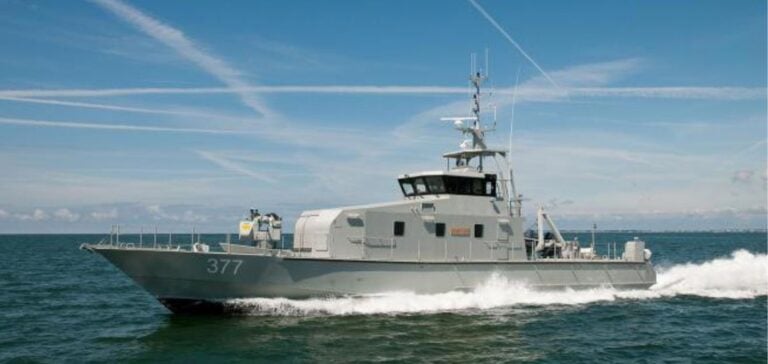Guyana’s Ministry of Finance has confirmed the purchase of an offshore military patrol vessel (OPV) for 39.5 million euros from French shipbuilder Ocea. This acquisition provoked a strong reaction from Venezuela, which still lays claim to the oil-rich Essequibo region. “The vessel price includes the cost of the vessel and its equipment as well as integrated logistical support services, including training, for a period of five years,” said the Guyana government.
Escalating regional tensions
Venezuelan Vice President Delcy Rodriguez criticized the purchase, saying on X: “Fake victim Guyana buys an ocean patrol boat from a French company.” She added: “Guyana, the United States, its Western partners and its former colonial master (Great Britain), are a threat to peace in our region. Venezuela will remain vigilant.”
Background and context of the conflict
The century-old conflict between Caracas and Georgetown over the Essequibo has resurfaced following Guyana’s initiative to launch tenders for oil exploitation in September 2023, followed by a referendum in Venezuela on December 3, proposing the annexation of the Essequibo. On the one hand, Georgetown repeats that it is sovereign over its entire territory and that the dispute must be settled before the International Court of Justice (ICJ) in The Hague, while Caracas calls for negotiations outside the ICJ, which it does not recognize.
Political reactions and the future of relations
Tensions were temporarily eased at a meeting in December between the presidents of the two countries, agreeing never to “resort to force.” However, recent statements show that the two nations are continuing their battle of declarations. Venezuela’s recent law designating Essequibo as a new Venezuelan state is seen by Georgetown as “a flagrant violation of the most fundamental principles of international law.”
Guyana’s purchase of a French patrol vessel has heightened tensions with Venezuela, highlighting territorial disputes and security concerns in the oil-rich Essequibo region.






















